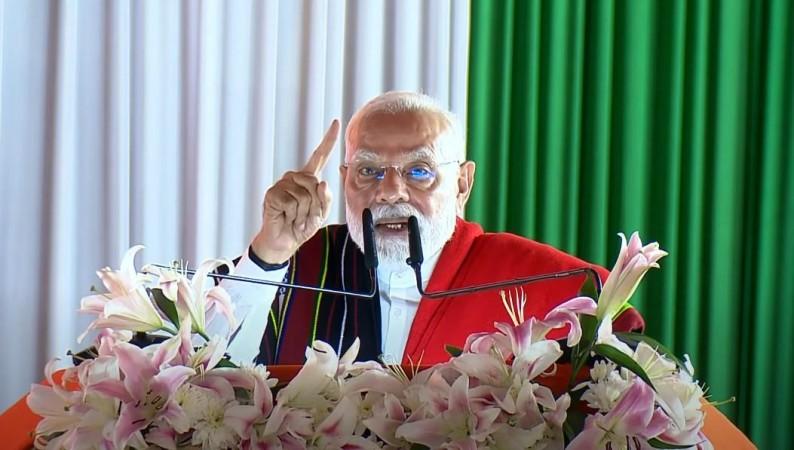
On the heels of the US H-1B and H-4 visa row, the Prime Minister's Office (PMO) has scheduled a crucial meeting on September 23. This meeting is set to explore regulatory reforms and other necessary measures to establish domestic audit and consultancy firms that can compete with the globally recognized 'Big Four.' This initiative is part of a broader strategy to reduce dependency on international giants and promote self-reliance in the auditing and consultancy sectors.
The meeting will be chaired by Shaktikanta Das, the Principal Secretary to the Prime Minister, and will include senior officials from the PMO, as well as representatives from the ministries of finance and corporate affairs. This gathering follows a previous meeting held in June, where initial discussions on this topic took place. The focus of the upcoming meeting will be to review the progress made since then and to chart a path forward.
The backdrop to this meeting is the recent call by the Ministry of Corporate Affairs for stakeholder inputs on creating multidisciplinary consultancy firms. These firms would bring together various professionals, including chartered accountants, company secretaries, lawyers, and actuaries, under a single organizational structure. Currently, there are regulatory barriers that prevent the formation of such multidisciplinary firms, and the PMO meeting aims to address these challenges.
Regulatory Challenges and Strategic Goals
One of the key issues to be discussed is the ban on advertising and marketing for professional services, which has been identified as a significant bottleneck. Additionally, the presence of different regulators for licensing various professional services complicates the process of creating multidisciplinary firms. The meeting will also address restrictive public procurement and empanelment processes, as well as the need for enhanced global collaborations.
To encourage the growth of domestic chartered accountancy firms, the Institute of Chartered Accountants of India (ICAI) has recently approved a draft regulatory framework. This framework is designed to enable domestic firms to collaborate with their global counterparts, thereby facilitating their growth and expansion. The global auditing and consultancy market is valued at approximately $240 billion, and the Indian government is keen to ensure that domestic firms can capture a significant share of this market.

By creating world-class Indian firms that can compete with the 'Big Four', India aims to establish a strong global presence in this industry. The PMO's initiative is not just about creating large firms; it is also about nurturing an ecosystem where various professionals can work together seamlessly. This requires a comprehensive approach to regulatory reform, including the creation of a single-window licensing and compliance system for professional services. Such a system would streamline processes and make it easier for firms to operate and grow.
Facilitating Growth and Overcoming Barriers
Another critical aspect of the discussions will be the need to facilitate easier fundraising for domestic firms. Currently, capital constraints are a significant hurdle for many firms looking to expand. By relaxing rules and providing support for fundraising, the government hopes to enable domestic firms to scale up and compete on a global stage. The meeting also comes at a time when the dominance of the 'Big Four' firms in the Indian auditing ecosystem is being scrutinized. These firms have a significant presence in India, and their influence is felt across various sectors. By creating strong domestic competitors, the government aims to provide more options for businesses and reduce the concentration of power in the hands of a few global players.
Historically, India has made several attempts to boost its domestic industries and reduce reliance on foreign entities. The 'Make in India' initiative, launched in 2014, is one such example. It aimed to transform India into a global manufacturing hub by encouraging both multinational and domestic companies to manufacture their products within the country. The current initiative to create domestic audit and consultancy firms is in line with this broader vision of self-reliance and economic independence.
The PMO's efforts to create indigenous 'Big Four' firms also align with the government's focus on Atmanirbhar Bharat, or self-reliant India. This vision emphasizes the importance of building domestic capabilities and reducing dependence on foreign entities. By fostering the growth of domestic audit and consultancy firms, the government is taking a significant step towards realizing this vision.
Related








